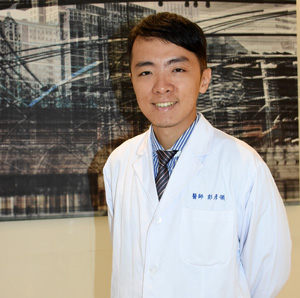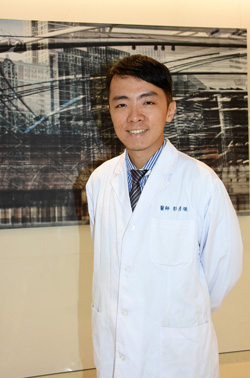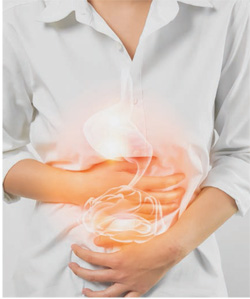02.2020 Life Guide
Indigestion! On peptic ulcer
Far Eastern Memorial Hospital /


What is peptic ulcer?
The so-called "peptic ulcer" means that the mucous membrane of the esophagus, stomach, duodenum and other organs is eroded by the gastric juice, and the wall of the digestive tract in-depth tissue is damaged, which is usually more serious than erosion (or "skin breaking"). It occurs in the stomach, which is called "gastric ulcer". It occurs in the duodenum, which is called "duodenal ulcer". Only a few ulcers occur in the esophagus. In Taiwan, about 10% of the population suffer from peptic ulcer, especially duodenal ulcer. In terms of age, most patients with duodenal ulcer are about 20-40 years old, while those with gastric ulcer are older, mostly 40-60 years old. However, in fact, all age groups may occur, so we should not take it lightly.
Causes of peptic ulcer
There are many causes of peptic ulcer, such as gastric acid, painkillers, smoking, drinking, irritant food, pressure, and H. pylori. In the etiology classification, except for a few special reasons, they can be generally divided into H. pylori related, anti-inflammatory non steroid painkillers related, and pressure ulcer. Among them, Helicobacter pylori is the largest (duodenal ulcer accounts for more than 90% - 95%, gastric ulcer accounts for more than 70% - 80%). Therefore, in order to cure peptic ulcer, Helicobacter pylori must be eradicated together.
It has been more than 30 years since H. pylori was found in 1984. Many studies have confirmed that H. pylori is an important pathogenic factor of peptic ulcer, gastric cancer and gastric lymph cancer. After the successful eradication of H. pylori, some patients with gastric lymph cancer can be cured. The patients who had gastric ulcer or duodenal ulcer can reduce the recurrence rate of ulcer and the incidence of gastric cancer after sterilization. More and more evidences also show that the patients with asymptomatic or peptic ulcer can significantly reduce the risk of gastric cancer if they can receive sterilization before gastric cancer. For these reasons, many people will be screened for H. pylori at their own expense.

The symptoms of gastric ulcer and duodenal ulcer are very similar, and there will be obvious epigastric pain. Most patients will say "the burning pain of epigastrium" or "the feeling of being inserted into the stomach or ground by needle", or even "the feeling of being pressed or suffocated by a big stone". What's different is that most gastric ulcer attacks only after eating a full meal, that is, the so-called "satiety pain". At the same time, there will be a burning sensation and nausea in the chest, which makes the patients dare not eat more. Duodenal ulcer often improves after eating, and starts to attack again when they are hungry, that is, "starvation pain". Some people even wake up in the middle of the night, which may also cause pain There is burning and nausea in the chest, but appetite will not be reduced. On the whole, it is difficult to judge whether there is peptic ulcer by symptoms, and it is also difficult to distinguish gastric ulcer or duodenal ulcer by symptoms. It must be confirmed by gastroscopy or even sectioning.
Treatment of peptic ulcer
At present, the three in one therapy is widely used for peptic ulcer with positive Helicobacter pylori, that is, one gastric medicine (hydrogen ion pump inhibitor) plus two antibiotics, for 7 or 14 days, the bactericidal effect varies from person to person, about 80% - 90%. In recent years, it has been found that the recurrence rate of peptic ulcer can be reduced from 80% to less than 5% after the eradication of H. For peptic ulcer with negative H. pylori, anti ulcer drugs should be used, and anti-inflammatory non steroid painkillers should be avoided.
Precautions
Generally, we should avoid overwork and stress, and try to maintain adequate sleep, regular diet, chewing slowly, and regular life. In addition, reducing social intercourse, avoiding smoking and alcohol, and taking anti-inflammatory and analgesic drugs without doctor's instruction can prevent peptic ulcer; if there are critical conditions such as vomiting of blood, aggravating abdominal pain, and relieving black stool, you should return to hospital immediately.





















